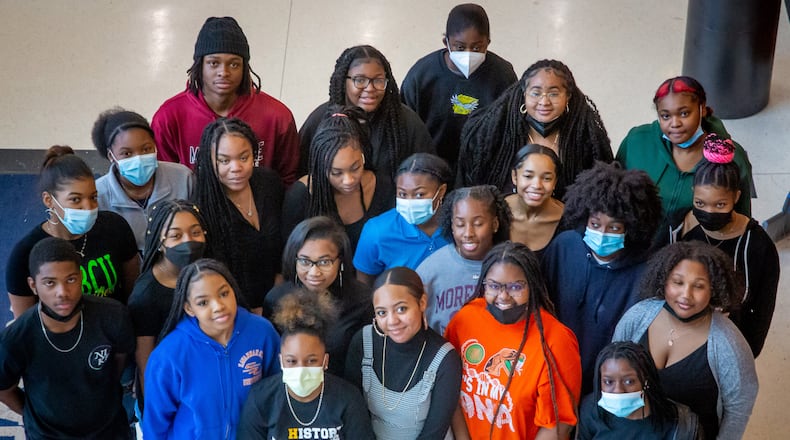The students have spoken in DeKalb County: They want to talk about race.
Just miles away, state Republican lawmakers have spoken, too: They want to limit those discussions.
But for the next few days, in the DeKalb district, students and staff will have those talks about racial disparities and celebrate the accomplishments of Black community members. It’s part of the annual Black Lives Matter “week of action.”
Superintendent Cheryl Watson-Harris said the week is about letting students in the state’s third-largest district have difficult conversations.
“It’s our responsibility as educators to create safe spaces for children to speak about issues that are important to them,” Watson-Harris told The Atlanta Journal-Constitution. “That I do not believe is in conflict with any of the other larger political conversations.”
Republican lawmakers in the state have filed at least four bills so far that would limit discussions about race in Georgia’s schools. Some would prohibit the teaching of “divisive concepts” and impose financial penalties on school districts for violations.
Black students make up 59% of the population in DeKalb schools.
“We’re celebrating diversity without fear, without favor,” said DeKalb Board of Education Chairwoman Vicki Turner. “It just brings a focus and awareness to what the time has been designated for, but in no way are others minimized.”
Joshua Berduo-Gomez, now an eighth grader at Sequoyah Middle School, remembers watching the protests after George Floyd was killed while in the custody of Minneapolis police in 2020. He said that was a turning point for him. He participated in last year’s event as a student panelist, and was glad to see his peers talking about racial disparities.
”I think it’s very important to study stuff like this so that people can become aware that it’s a problem that needs to be addressed,” he said. “Not just because it might be legally incorrect but also the morality.”
Credit: Steve Schaefer
Credit: Steve Schaefer
As Dunwoody High School senior Avishai Harris and her classmates prepared for the week of action at their school, they wanted to make sure Black students felt seen and celebrated.
But they couldn’t help but wonder if any of their plans could be contentious.
“Even though there’s been no pushback from anyone,” she said, “it’s always at the back of your mind that maybe someone won’t take this well.”
Black Lives Matter at School is a national initiative that draws participation from schools around the country, particularly in metropolitan areas. The goal is to encourage conversation and action around issues of racial justice, according to the National Education Association
The week of action is made up of symposiums, optional lesson plans and school-based events about the contributions Black people have made in business and academics, mental wellness in Black communities and racial disparities in government, to name a few topics.
It’s co-created by students, Watson-Harris said. Optional lesson plans range from elementary students discussing how race is portrayed in picture books, to middle and high school students learning about voting.
Harris hopes the lessons and conversations will stay with students after it’s over.
“What I really want to get across is that everyone can make a change and participate,” Harris said. “I just hope that it continues many years after I’m out of high school.”
About the Author
Keep Reading
The Latest
Featured




